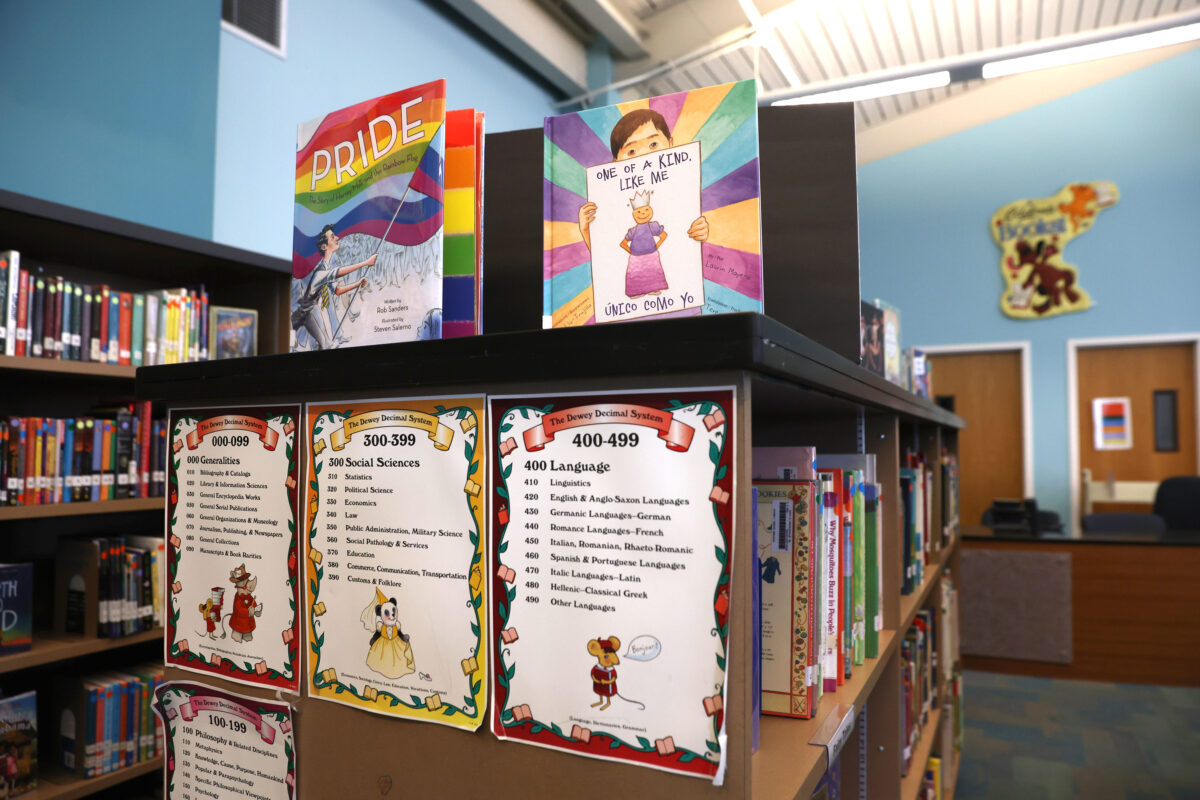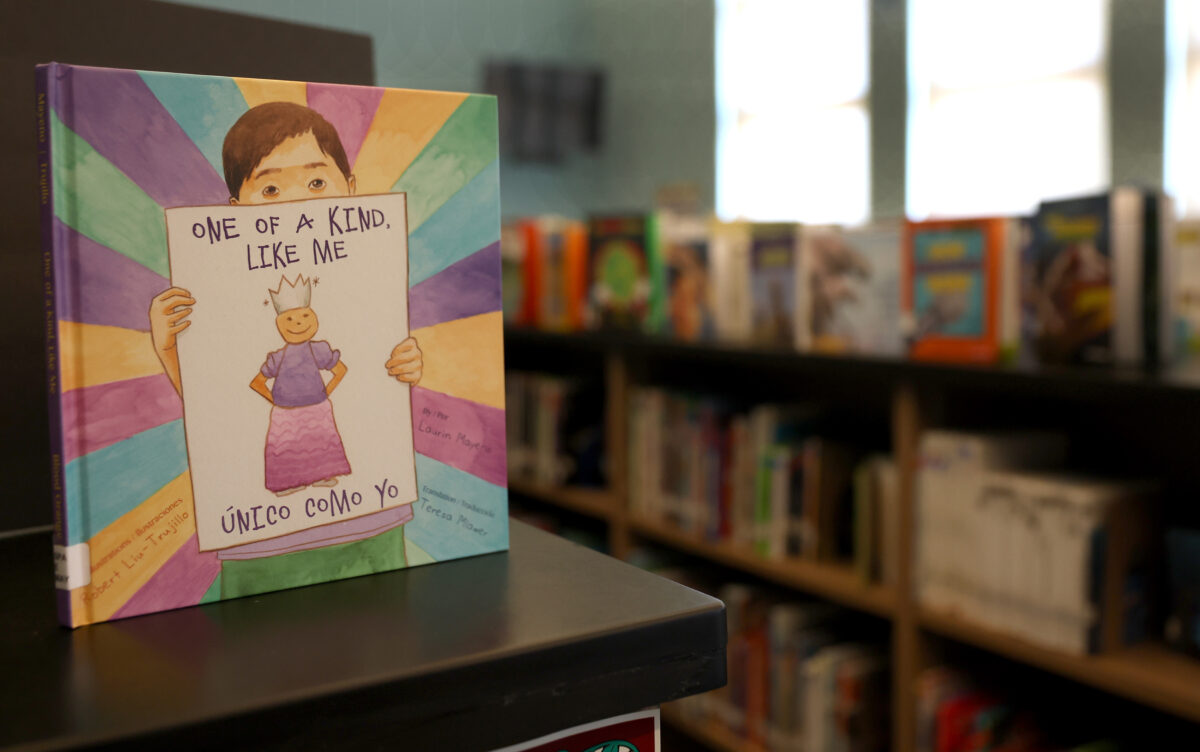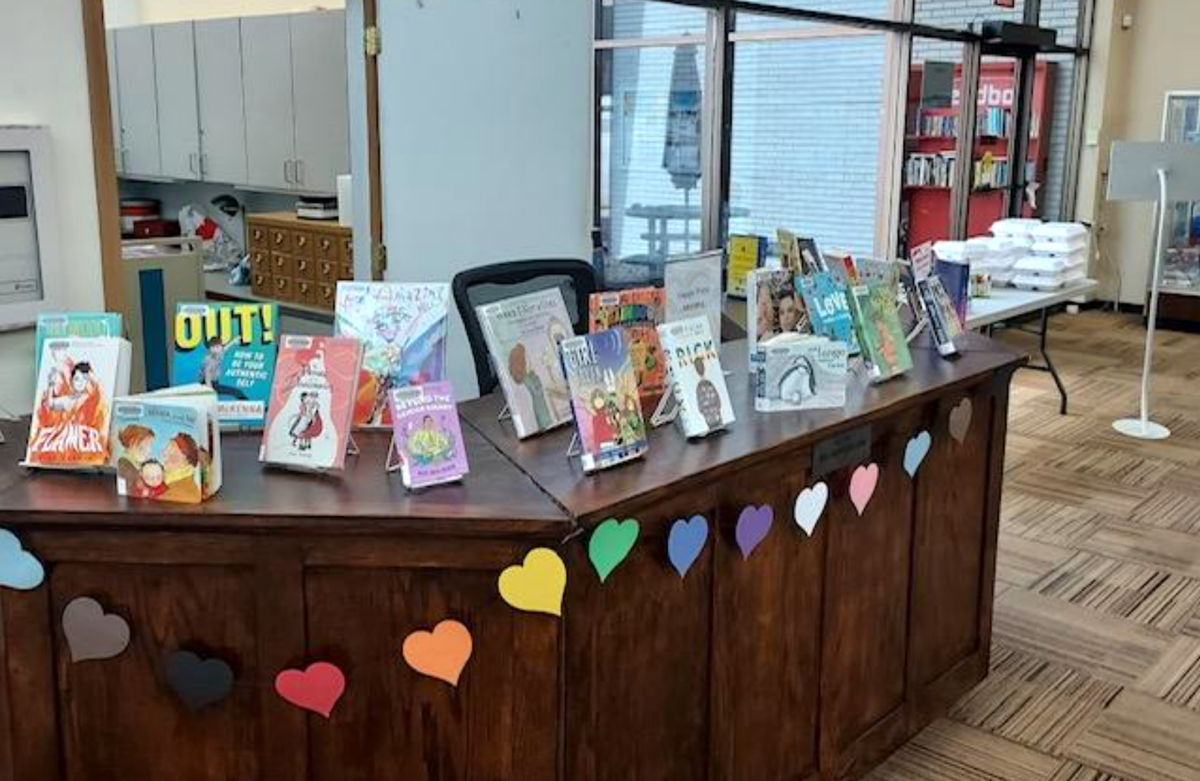


A Texas lawyer who created a highly successful abortion ban tactic has now turned his hand to stopping obscene library books.
Jonathan Mitchell, a Texas lawyer, was influential in developing a series of local abortion bans. They allowed towns to ban abortions even before the overturn of Roe v. Wade.
The bans had two enforcement mechanisms. Family members could sue those involved in the abortion, and a $2,000 fine for any abortion performer would fall after the end of Roe v. Wade.
Mitchell has offered a similar strategy to ban libraries from including books with obscene content.
According to an online post by Star Republican Women, Llano County, the vice chair of Texas’s library advisory board, Bonnie Wallace, knows Mitchell has a project in mind.
The post shared a photo of a message from Wallace.
Mitchell plans to craft municipal ordinances that “would immediately make pornography in the libraries illegal,” the message says.
The message claims Mitchell is currently writing 10 local ordinances to remove library and school exemptions for displaying obscenity. He also has 10 more ordinances he plans to write.
According to Axios, which obtained a confidential copy of the ordinance, the library may not purchase items with “immoral content” or allow drag queen story hours.
Librarians would also be forbidden from putting books with nudity and sexual acts in their young adult sections.
Further, librarians wouldn’t be allowed to display LGBT flags or celebrate LGBT pride over other genders.
Like Mitchell’s abortion ordinances, private lawsuits against anyone who violates the ordinance would be the enforcing mechanism.
Previous attempts to stop obscene books have resulted in a lawsuit against the efforts in Llano County.
Conservatives in charge of the local library, including Wallace County Judge Ron Cunningham, library system director Amber Milum, several county commissioners, and several county library board members attempted to remove several sexualized children’s books, the lawsuit states.
These included Maurice Sendak’s “In the Night Kitchen,” which includes pictures of a naked boy. They also included “It’s Perfectly Normal: Changing Bodies, Growing Up, Sex, and Sexual Health” by Robie H. Harris and Michael Emberley, which contains pictures and descriptions of solo sex.
“Publicly, defendants have claimed that their purge is aimed at removing ‘pornographic’ materials from library shelves. But the evidence shows that this is mere pretext,” the lawsuit argues.
It claims the real reason the defendants removed the books was because they disagreed with them.
Read More
Then, the library leaders attempted to remove books on an 850-book list provided by Texas State Representative Matt Krause, the lawsuit mentions.
Some of these books included racially-tinged histories by African American intelligentsia member Ta-Nehisi Coates, according to the lawsuit,
Emails obtained by the lawsuit reveal this description was chosen over saying Krause’s book list was a “16-page list of CRT and LGBTQ book[s].” But they didn’t say the list cataloged “pornographic” books.
Some books the library removed were sexually graphic fictional stories targeted toward teens, like “Gabi, a Girl in Pieces” by Isabel Quintero.
Others, like “They Called Themselves the K.K.K: The Birth of an American Terrorist Group” by Susan Campbell Bartoletti, are historical nonfiction.
When the Llano County library discovered that “Lawn Boy” by Jonathan Evison and “Gender Queer: A Memoir” by Maia Kobabe were available on OverDrive, an online book-providing service, the library canceled all access to the website rather than implementing parental controls, the lawsuit said.
The library commissioners court also created a library advisory board to supervise the purchase of new books, the lawsuit says. The new board banned staff librarians from its meetings.
When librarian Suzette Baker opposed the removal of the books, Milum fired her for “insubordination,” the lawsuit said.
The lawsuit bases its case against the library on First Amendment grounds.
“The First Amendment’ indisputably protect[s] the right to receive information—a fundamental right that is enjoyed by both adults and children,'” the lawsuit reads, quoting another case.
The lawsuit also cites a Supreme Court case that argued government officials can’t remove books from school libraries “simply because they dislike the ideas contained in those books.” It argues that this principle applies even more strongly to public libraries.
Laws like the ones Mitchell proposes or questions about the constitutionality of removing books from public libraries will likely have nationwide effects.
In the last several years, American parents have noticed that a tide of sexually-graphic books now flows into school and local libraries.
These books can be incredibly graphic, as previously reported. Some cartoons in these books show people engaged in sex or solitary sexual activity.
Other times, today’s controversial books instruct young children about sexual practices. Other memoirs, such as “All Boys Aren’t Blue” by George Johnson, graphically describes the homosexual abuse of a minor by his cousin.
Books like these often receive awards from the American Library Association (ALA).
The ALA also has encouraged librarians to secretly promote these books, even when locals don’t want them, as previously reported.
At the same time, these books have received aggressive pushback from many parents. According to the authors association PEN America, 2,532 books were removed from libraries in 2022.
Some parents have brought criminal allegations against libraries for including explicit content, as previously reported.
Others have rallied community support to exert control over libraries.
It remains to be seen how the disagreement between many parents and activist organizations will resolve nationwide.



